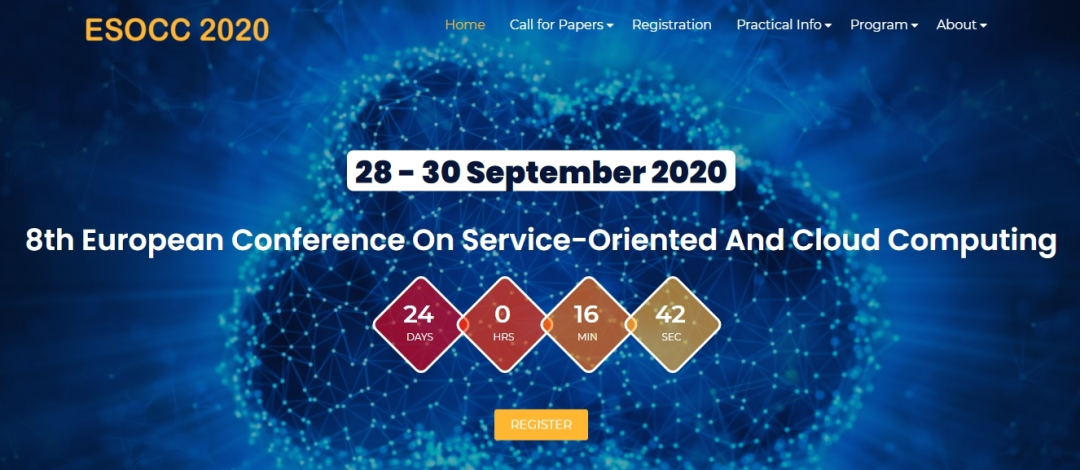The European Conference on Service-Oriented and Cloud Computing (ESOCC) is the premier conference on advances in the state of the art and practice of Service-Oriented Computing and Cloud Computing in Europe.
The main objectives of this conference are to facilitate the exchange between researchers and practitioners in the areas of Service-oriented Computing and Cloud Computing and to foster future collaborations in Europe and beyond. ESOCC 2020 will include invited talks and presentations of selected research papers with the participation of top researchers from academia and industry.
Within this conference, SODALITE is featured at:
- Paper presentation: "Quality Assurance of Heterogeneous Applications. The SODALITE Approach"
- Tutorial session: "Predictive and preemptive maintenance of large-scale cloud applications" held in collaboration with RADON Project
The tutorial is suitable for students practitioners and researchers who are actively working on Cloud computing, HPC, and Serverless computing research and practice.
The first half of this tutorial focuses on SODALITE, while the second half is on RADON. Each sub-tutorial starts with an overview of the project, highlighting its objectives, architecture, and case studies. In the SODALITE tutorial, we show how a defect-free deployment model of a heterogeneous application can be developed using the SODALITE IDE, utilizing the semantic analysis support of the SODALITE. A deployment model is described using TOSCA and Infrastructure-as-code (IaC).
We demonstrate how semantic reasoning is used to simplify the development process, to identify syntactic and semantic errors in the deployment model, and to predict the smells and anti-patterns in the deployment model. In the RADON tutorial, we show how a tool implemented in RADON, namely the "Defect Predictor", can help developers and operators in maintenance operations by spotting IaC scripts that might contain defects, in a way to save maintenance resources and costs. The whole pipeline responsible for automatically extracting relevant data, including IaC scripts, from open-source repositories and continuously training and evaluating the models for the detection of defects in such scripts is also described.
